In this article:
Scalp buildup refers to the accumulation of sebum, dead skin flakes, debris, and sweat on the scalp. This takes the appearance of a dirty white residue on your scalp and can cause greasy hair, scalp irritation, itching, and eventually hair loss. (1)
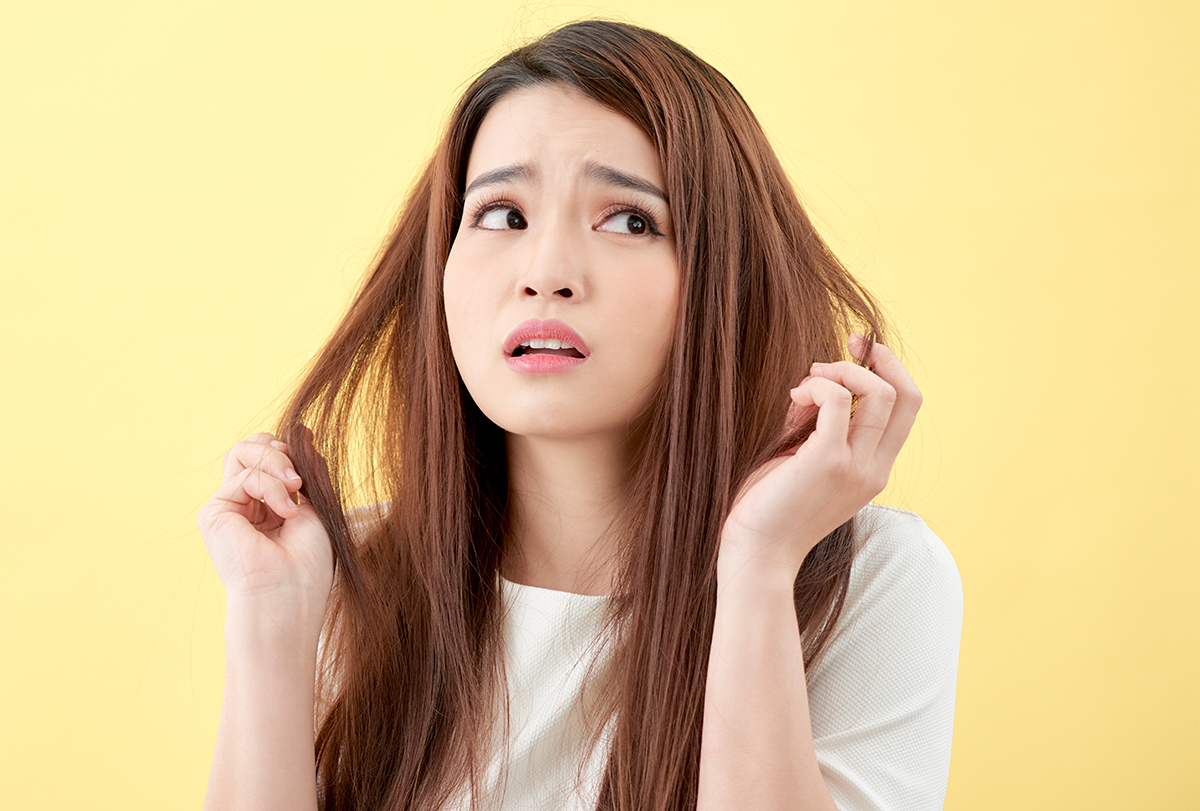
The buildup of grime on the scalp can occur due to a variety of reasons, but the most common ones are overuse of hair oils/serums, overactive oil glands on the scalp, and not washing your hair enough.
It is important to address the underlying issue to get rid of the buildup and achieve healthy hair. (2)
How to Clear Scalp Buildup
Here are effective ways to make your scalp clean and healthy:
1. Use a scalp rinse
A scalp rinse is a mixture of beneficial ingredients (such as green tea or onion) and water used to wash your hair and scalp. There are many rinses that can help clear dandruff and oil from the scalp and promote healthy hair growth.
2. Make sure you’re washing your hair enough with a clarifying shampoo
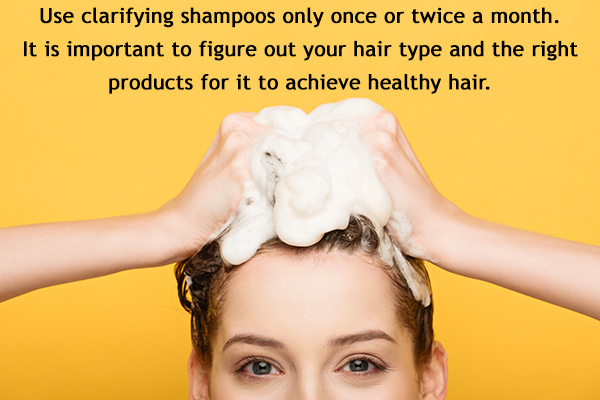
While washing your hair and scalp is a great way to keep dandruff and grime at bay, overwashing can lead to more harm than good. Excessive use of clarifying shampoos strips your hair of its natural oils, leading to the overproduction of sebum by the oil glands to keep up.
Use clarifying shampoos only once or twice a month. It is important to figure out your hair type and the right products for it to achieve healthy hair. (3)
3. Use a scalp scrub
Scalp scrubs help exfoliate your scalp and get rid of debris and dead skin cells. Physical scrubs such as almond powder and salt help remove grime and debris buildup, whereas exfoliating enzymes help dissolve dead cells and get rid of oil. (4)
4. Use a scalp massager
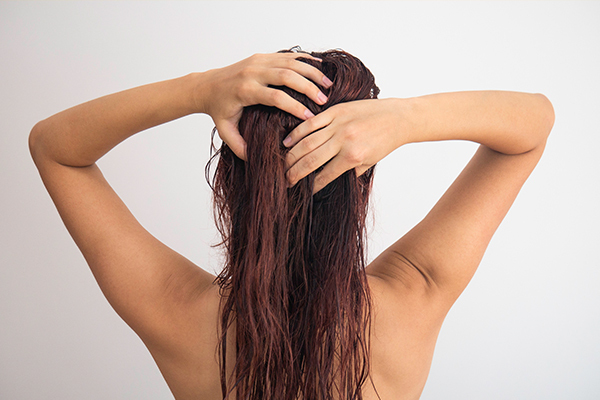
Scalp massagers help soothe the scalp and get rid of itching and irritation. Massagers also increase blood flow to the scalp and remove the buildup of hair care products.
5. Avoid oily pomades
Avoid the use of hair products that can clog up the pores of your scalp and lead to a buildup of oil and debris. Hair wax, pomades, and gels are all examples of such products.
If you do use pomades and waxes, make sure to wash your hair and scalp thoroughly afterward. Never go to sleep with wax or pomade in your hair.
6. Avoid greasy oil-based serums
Do not use hair oils or oil-based serums on your hair if you have greasy hair. The silicone and oil in these serums tend to cling to the hair and scalp, leaving a residue. This residue leads to product buildup on the scalp.
DIY Home Remedies to Reduce Scalp Buildup
Here are a few simple, DIY remedies to treat your scalp buildup at home:
1. Rinse with fermented rice water
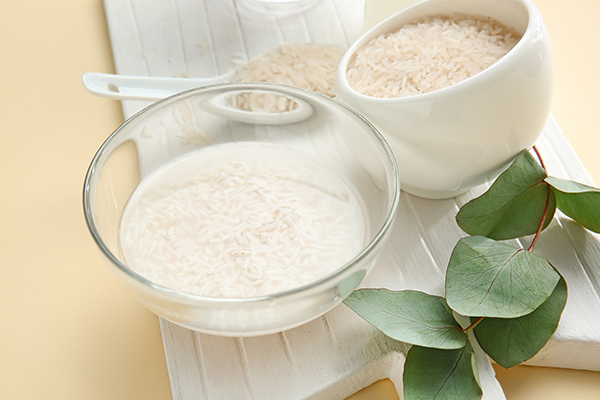
Rice water contains protein and also helps fight dandruff and scalp irritation. Fermenting it helps lower its pH to make it more beneficial for your hair.
How to use:
- Add 2 cups of rice and 4 cups of water to a vessel and let it soak for half an hour.
- Pour the rice water into a glass container and seal it shut. Let it sit at room temperature for a couple of days until it ferments and gives off a sour odor.
- Apply the fermented rice water to your scalp using a spray bottle or your hands. Massage it for 10 minutes and let it sit for half an hour.
2. Use a green tea rinse
Alternatively, you can use green tea as a scalp rinse. Green tea helps fight scalp irritation and itchiness due to its anti-inflammatory and antioxidant properties. (5)
How to use:
- Pour 2 cups of water into a pan and boil.
- Dip 2 green tea bags into the water and let them boil for half an hour.
- After cooling, pour this tea into a spray bottle.
- Wash and dry your hair as you normally would.
- Spray the tea onto your scalp and let it soak for an hour before rinsing off.
3. Apply witch hazel
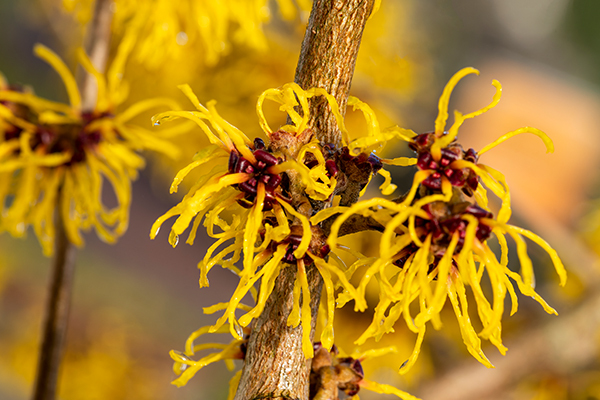
Witch hazel helps soothe your overactive oil glands to reduce sebum production. (6) It is widely used to treat scalp buildup and dandruff.
How to use:
Method 1
- Add one part witch hazel to double the amount of water.
- Let it soak for half an hour.
- Use this water as a hair rinse.
Method 2
- Dip a cotton ball in witch hazel.
- Wipe your scalp with the soaked cotton ball.
Note: Always perform a patch test before applying something to your scalp or skin. Make sure to choose an alcohol-free witch hazel.
4. Use an almond scalp cleansing scrub
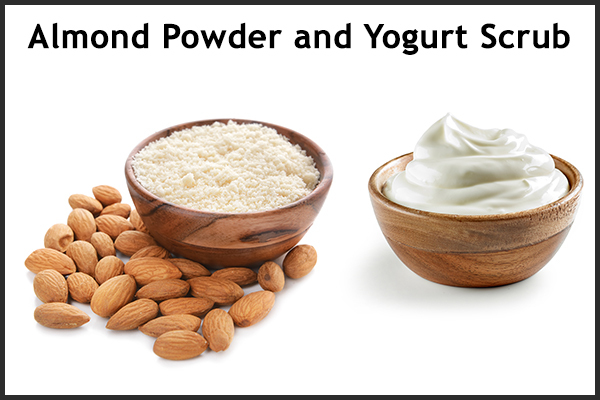
Ground almond powder can be used as an effective scrub to exfoliate your scalp.
How to use:
- Mix 2 tbsp of almond powder and 2 tbsp of yogurt.
- Apply this mixture to your scalp and massage gently for a few minutes.
- Wash it off with lukewarm water and shampoo.
5. Prepare a salt scrub
Salt is another great exfoliant for your scalp. It can be combined with olive oil and avocado oil to clear scalp buildup and rejuvenate your hair follicles.
How to use:
- Mix 1 tbsp of Himalayan salt, 2 tbsp of olive oil, and 1 tsp of avocado oil.
- Apply this mixture to your scalp and massage it.
- Wash it off with lukewarm water and mild shampoo.
What Causes Scalp Buildup?
Depending on the cause, scalp buildup can essentially be of two types: natural scalp buildup or product buildup:
1. Natural scalp buildup
As the name suggests, this is a naturally occurring condition that happens when an excess amount of oil, dead skin cells, and debris start accumulating on your scalp.
Natural scalp buildup is usually due to an overproduction of sebum or oil on the scalp. (7) It can be worsened by improper scalp hygiene – such as not washing your hair often enough.
2. Product buildup
Product buildup on the scalp is caused by the overuse of hair care products such as oils, serums, and hair masks. These products tend to leave a sticky residue on the scalp when applied excessively. Over time, this residue turns into product buildup on the scalp.
Here is a brief list of the most common causes behind both types of scalp buildup:
- Dry weather
- Use of harsh chemical products on the hair
- Certain medicines such as lithium, psoralen, and interferons
- Certain metabolic diseases
- Stress
- Hormonal imbalances
Does Scalp Buildup Lead to Hair Loss?
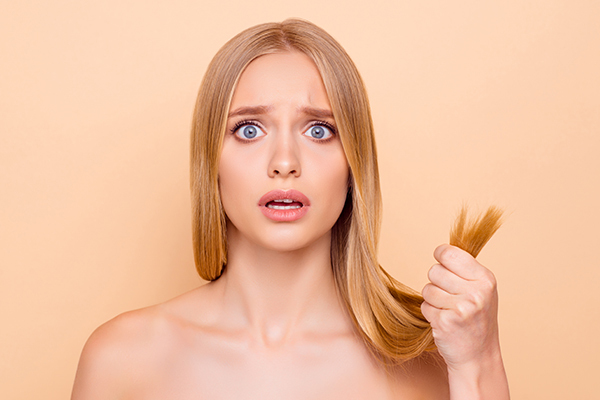
Scalp buildup, if left untreated, may lead to hair damage and hair loss in some people. It can cause excess sebum deposits around the hair follicles, preventing oxygen supply and eventually leading to hair shedding. (2)
Scalp buildup also causes greasy and limp hair that appears thinner than normal.
Preventive Tips for Scalp Buildup
Here are the few preventive tips to avoid scalp buildup:
- Certain hair care products can cause excess oil accumulation on the scalp. Everyone has a different hair type, and it is important to find the products that work for you.
- Always use lukewarm water to wash your hair and scalp. Avoid using hot water on your hair.
- Avoid the use of heating products such as hair dryers. If you must use one, use it with a cold air setting.
- Check your scalp regularly for signs of scalp buildup: redness, itching, flaky skin, etc.
When to See a Doctor
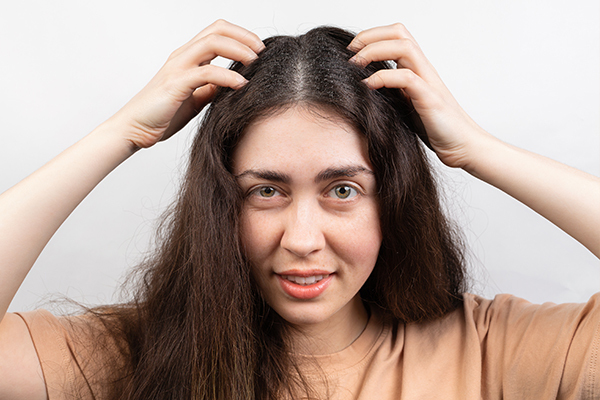
Certain medical conditions such as hormone imbalances can make you more prone to excessive oil production. Increased sebum production can have debilitating effects in people with dandruff or seborrheic dermatitis.
It may be best to consult a doctor for advice if you suffer from any such condition or if your scalp buildup is interfering with your day-to-day life. The doctor will examine your scalp and may run a few tests before prescribing a treatment for you.
Most-Asked Questions About Scalp Buildup
What is the difference between dandruff and scalp buildup?
Dandruff is a white and flaky buildup of dead skin cells on the scalp. It is caused by a yeast infection and can cause itchiness and irritation.
On the other hand, scalp buildup is defined as an accumulation of oil or sebum, debris, and dead skin cells on the scalp. It can also cause scalp irritation, itching, and dry hair.
Can an apple cider vinegar rinse be helpful in clearing scalp buildup?
Apple cider vinegar is a very potent acidic ingredient that can have adverse reactions on the skin and scalp of some people. Avoid using ACV directly on your skin.
Final Word
Scalp buildup is a common phenomenon that affects many people. It is mostly caused by excess sebum deposit on the scalp and may sometimes lead to scalp irritation, itchiness, or hair damage.
It is an easily treatable condition, and following a healthy hair care routine will prevent it from recurring. However, consult a dermatologist if your scalp buildup does not go away with at-home treatment.
- Was this article helpful?
- YES, THANKS!NOT REALLY


